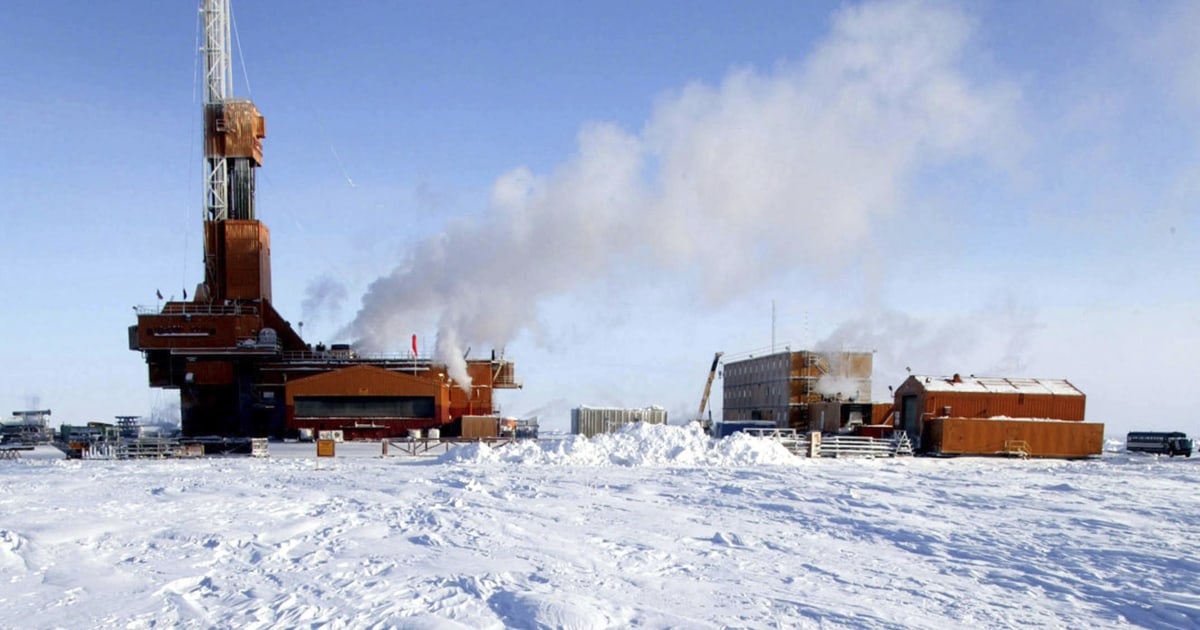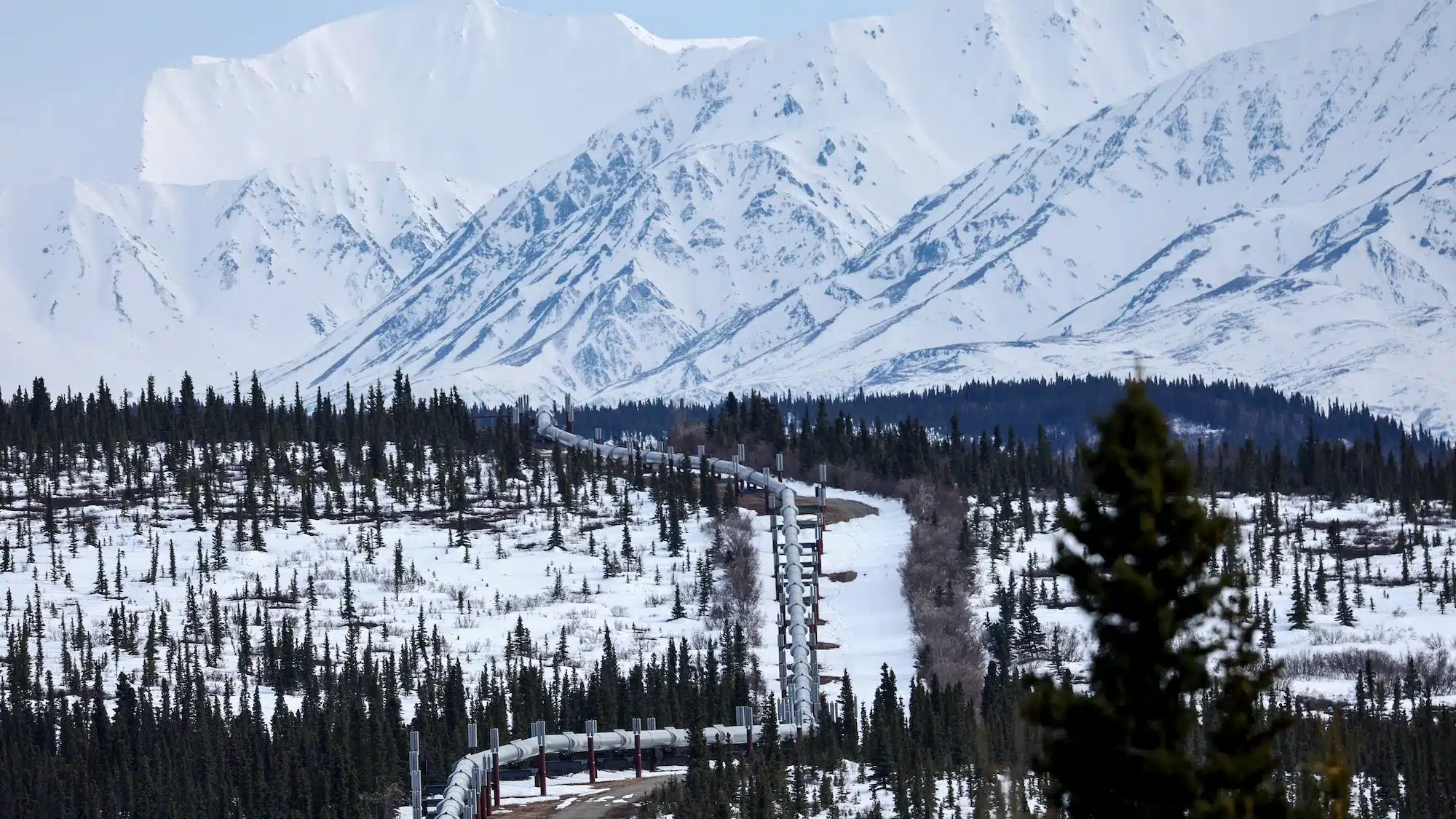In a big victory for climate and environmental groups, the Biden administration completed a rule on Friday that prohibits fossil fuel drilling on nearly half of Alaska’s National Petroleum Reserve, among other substantial conservation measures.
The Interior Department will prohibit oil drilling on more than 13 million acres in the Western Arctic, including approximately 40% of the NPR-A, a remote area home to protected wildlife species such as polar bears and caribou.

Biden Administration Bans Drilling In Nearly Half Of Alaska Petroleum Reserve In Sweeping Win For Climate Advocates
The reserve consists of more than 23 million acres of public land and an underground emergency oil supply for the United States Navy, which was established in the early 1920s. It has lately been the site of the Willow project, which is owned by ConocoPhillips and is a contentious Arctic oil drilling operation.
When the Biden administration approved Willow in March 2023, it generated a social media reaction from young people, as well as environmental and climate activists. Friday’s measure could boost President Joe Biden’s support among young voters.
“These natural wonders demand our protection,” Biden said in a statement. Biden said he was “proud” of his administration’s decision to protect more than 13 million acres in the Western Arctic, but added that “as the climate crisis threatens communities across the country, more must be done.”
Some Alaska Natives are critical of the drilling restriction covering such a large area of the NPR-A. It has sparked debate among Alaska’s bipartisan congressional delegation, as well as Alaska Native groups, who claim they rely on oil drilling tax money to pay schools and basic services.
The final rule “does not reflect our communities’ wishes,” said Voice of the Arctic Iñupiat President Nagruk Harcharek. The move “will hurt the very residents the federal government purports to help by rolling back years of progress, impoverishing our communities, and imperiling our Iñupiaq culture.”

Biden Administration Bans Drilling In Nearly Half Of Alaska Petroleum Reserve In Sweeping Win For Climate Advocates
The restriction will also expose the president to Republican criticism for failing to prioritize American energy independence and driving up fuel prices. However, during Biden’s presidency, the United States has produced more oil than any other country in history, according to CNN Business, and petrol prices have dropped $1.35 since their all-time high in June 2022.
In addition to conserving a large portion of the NPR-A on Friday, the Biden administration tried to stop the Trump administration-approved Ambler road in the Alaskan wilderness. If developed, the road would provide access to a proposed copper mine. The government indicated that it intended to take “no action” on the mine, essentially limiting the road’s access to federal territory.
Ambler Metals, the business seeking to mine copper in the region, said it was “deeply disappointed” by Interior’s decision. According to Ambler’s managing director, Kaleb Froehlich, the move would deprive local communities of jobs and tax income, as well as prevent the United States from building a domestic supply of minerals important to renewable energy technologies and national security.
The Alaska announcements cap off a busy week for Biden’s Interior Department. On Thursday, the agency unveiled a new regulation that elevates conservation to the same level as other public land uses such as grazing, mining, and energy production. The new conservation law applies to 245 million acres, the most of which are in the Western United States, or roughly one-tenth of the country’s territory.
According to CNN, Biden plans to enlarge two national monuments in California next week, adding to the ones he has already named during his presidency.
Interior Secretary Deb Haaland stated that the administration’s Alaska conservation announcements “underscore our commitment to ensure that places too special to develop remain intact for the communities and species that rely on them.”
In a statement, Haaland stated that the move would be a significant step toward preserving “the way of life for the Indigenous people who have called this special place home since time immemorial.”
Environmentalists and several indigenous groups praised Biden’s statements on Alaska conservation as a “important step.”
“It’s no secret that the Reserve–a vast region of tundra and wetlands teeming with wildlife–has frequently landed in the crosshairs of the insatiable fossil fuel industry,” said Earthjustice attorney Jeremy Lieb in a statement. “We applaud this move and call for even bolder action to keep the fossil fuel industry out of the Arctic, for the sake of the climate and future generations.”

Biden Administration Bans Drilling In Nearly Half Of Alaska Petroleum Reserve In Sweeping Win For Climate Advocates
In a statement, Rosemary Ahtuangaruak, the former mayor of the North Slope village of Nuiqsut and a staunch opponent of Willow, called on the Biden administration to build on the protections, saying it would help Alaska Natives “continue to sustain and pass along the traditions and activities of our elders for years to come.”
In a recent interview with CNN, Ahtuangaruak stated that building of infrastructure, as well as ice and gravel roads for the Willow project, is well advanced. Ahtuangaruak is concerned that the project is already having an impact on the annual caribou migration, which is a major source of food for people.
“The animals have already begun their migration; we also have animals that get impeded and get stuck on the ice road areas,” Ahtuangaruak, a reporter for CNN, said “It’s really tough to work through all these issues.”
SOURCE – CNN









